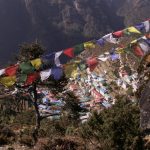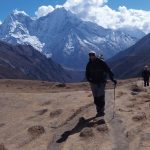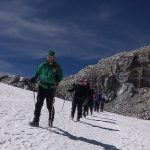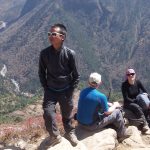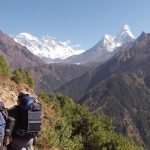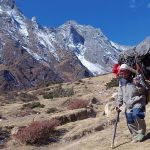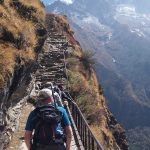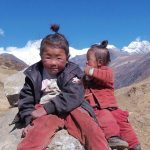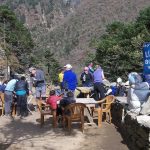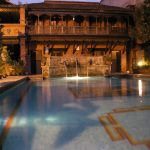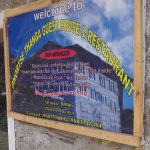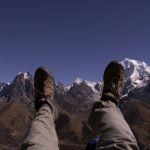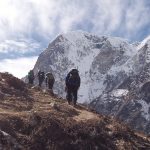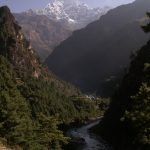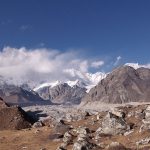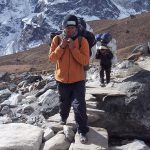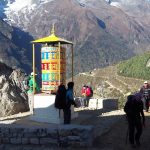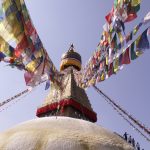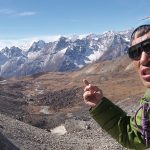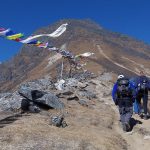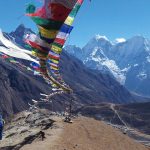Everest Inspiration Meet Everest Mountaineers and Spectate at the Everest Marathon
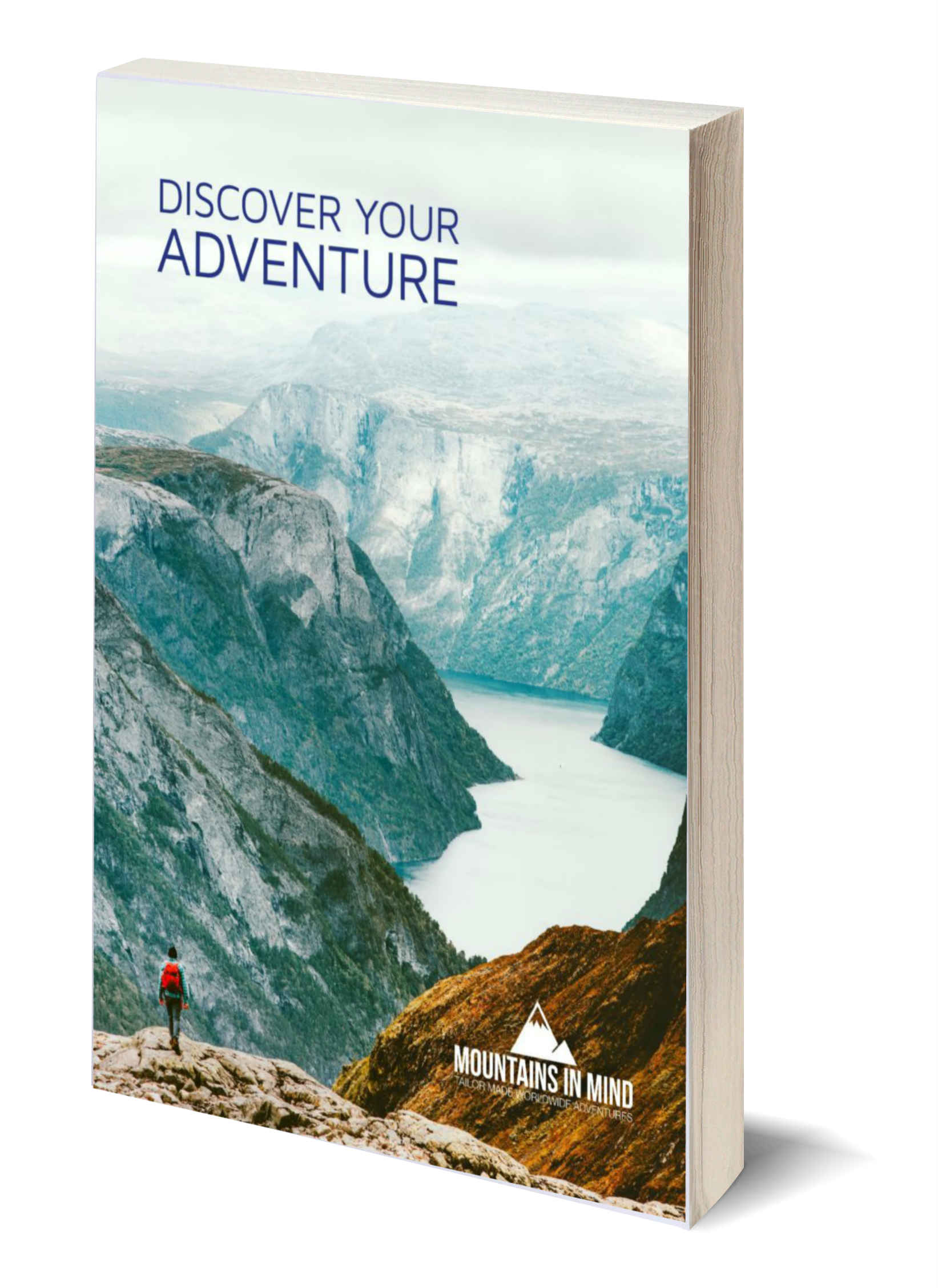
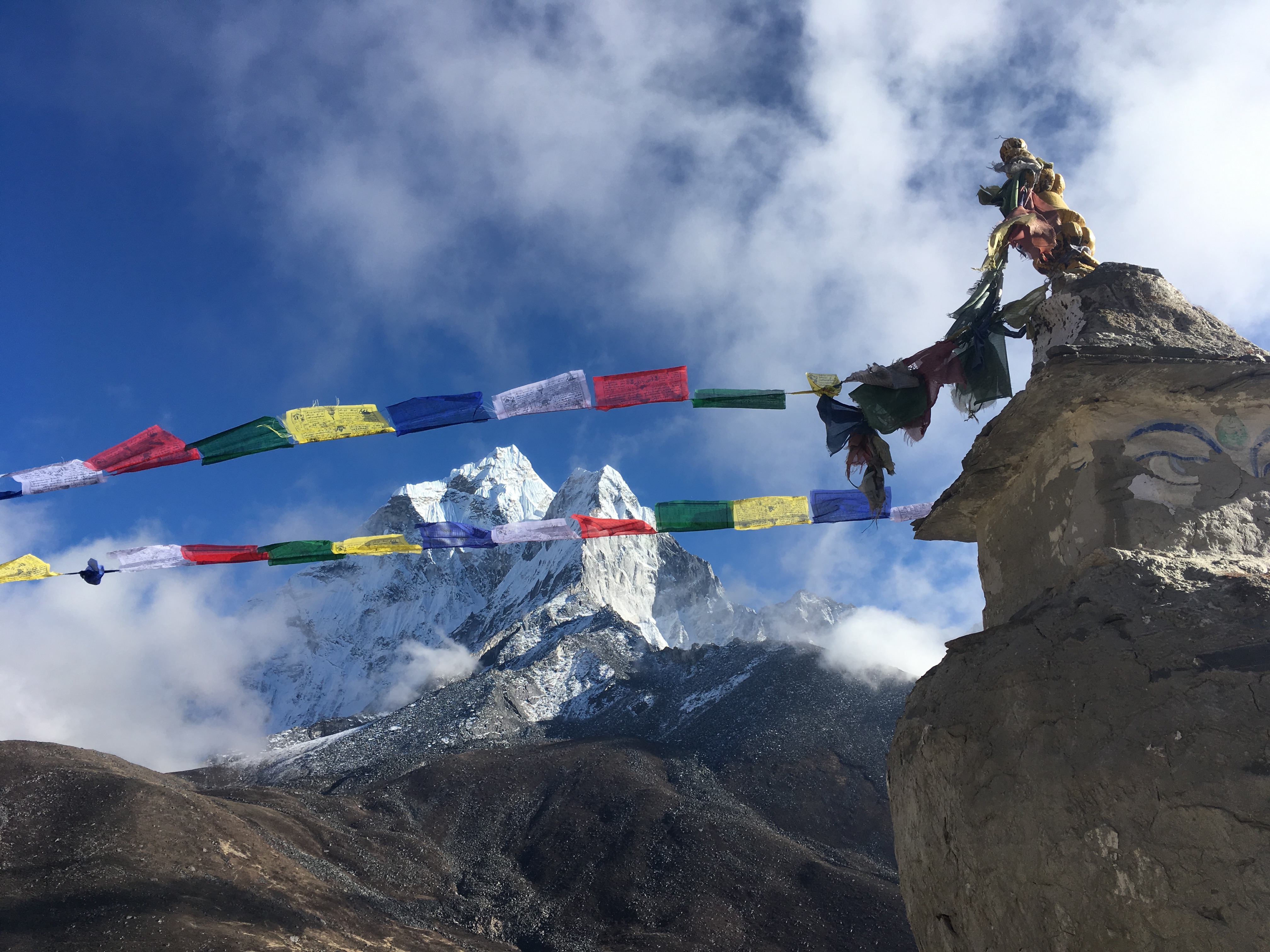
Why Choose Mountains in Mind?
- Excellent Sherpa conditions
- Supports the local community
- Small group sizes
- UK Guide
- Tailored itinerary
- Selective group dates
- Personal touch
- All inclusive price
- Deluxe accommodation
- Optional excursions
- GPS Trackers
-
The name gives it away! Be prepared to be inspired on this unique trek to Everest Base Camp. We’ve personally lined up some very special features within this trip to make it unique to Mountains in Mind. There will be the fantastic opportunity to meet Everest climbers when you reach Base Camp. This is normally a restricted area that is out of bounds to trekkers. Our trek also coincides with the Everest Marathon that takes place annually on the 29th May to mark the anniversary of when the great mountain was first conquered by Sherpa Tensing and Edmund Hilary. There will be time to spectate at the finish and cheer on in awe the finishers of this gruelling event.
The trek follows the traditional Everest Base Camp route ascending the breathtaking Khumbu valley. The lower sections of the trail meanders close to the river through vast colourful rhododendron forests before ascending higher into lower lying vegetation. You’ll experience breathtaking scenery and stunning landscapes as the two combine to create the most amazing panoramas.
You’ll feel mesmerised by the stunning beauty of Ama Dablam as she welcomes you to the higher reaches of the Khumbu. You’ll the follow the moraines from the retreating glaciers before sweeping round and heading further up the valley as you cross the plateau covered in poignant memorial cairns in honour of those who have perished on Everest and surrounding mountains.
This trek combines the awe-inspring beauty of the region with the beast of an event. A magical experience with memories to last a lifetime.
If you are a runner and wish to enter the event, please contact us for further information.
-
I
- Thursday 16th May 2019
- £2945
- Other dates available. Contact us for details.
-
- International flights
- Internal flights to Lukla
- Transfers to/from Kathmandu airport
- All meals during the trek
- A welcome meal in Kathmandu
- Deluxe accommodation in Kathmandu
- Half-day sightseeing tour in Kathmandu
- Traditional guest house accommodation on the trek
- A fully supported Sherpa team with Nepali Sirdar
- Porters to carry your overnight baggage
- Full briefing on arrival
- Satellite phone
- Medical support
- UK Expedition Leader
- All national park fees
- An opportunity to meet Everest mountaineers at Base Camp and to spectate on the Tensing-Hillary Everest Marathon
- Online support and advice with your preparation
- Training plan to make the most of your trek (if required)
- Option to attend training weekend in the UK (at an additional cost)
- Plus dreams and friends to last a lifetime !!!
-
- Personal Insurance
- IMPORTANT. Confirm with your insurance provider that your policy covers you for trekking to 6,000m and includes emergency helicopter evacuation to Kathmandu.
- Visa (obtainable at Kathmandu airport)
- Lunch and evening meals in Kathmandu (apart from the initial welcome meal)
- Beverages
- Porter tips
- Additional excursions
- Personal Insurance
-
Thursday 16th May
Depart the UK
Board your flight from Heathrow to Kathmandu.Friday 17th MayArrive Kathmandu
You will be greeted by our Nepalese representative on arrival at Kathmandu airport and be transferred to a high quality hotel in Kathmandu. You’ll have time to freshen up before the trip briefing and welcome meal.Accommodation: HotelMeals: DSaturday 18th MayKathmandu SightseeingOur tour guide will take you on an amazing sightseeing tour in Kathmandu including a visit to the Boudhanath Temple. The afternoon will be free time to fill up on last minute supplies or to visit the many gear and book shops in the Thamel district. In the evening you have the option to take evening meal in the hotel or Thamel district.Accommodation: HotelMeals: BSunday 19th MayDepart for Lukla (2840m) and trek to Phakding (2610m)An early morning start to catch the flight to Lukla. On arrival at the Tenzing Hillary airport in Lukla, you will meet our Sherpa/Porter team and depart the village heading towards your overnight destination at Phakding.Accommodation: LodgeMeals: B/L/DTime: 3-4 hoursMonday 20th MayTrek to Namche Bazaar (3440m)The trail takes you through deep gorges and over metal suspension bridges before ascending steeply up to Namche Bazaar. You’ll have the opportunity to get your first glimpse of Mount Everest if the skies are clear.Accommodation: LodgeMeals: B/L/DTime: 5-6 hoursTuesday 21st MayAcclimatisation day in Namche Bazaar (3440m)During the morning, you take a short uphill walk to the Everest View Hotel to aid acclimatisation and have fantastic views across to Everest. The afternoon is at leisure in the Sherpa capital.Accommodation: LodgeMeals: B/L/DWednesday 22nd MayNamche Bazaar to Thyangboche (3860m)After a hearty breakfast, you head up the Khumbu valley to Thyangboche. Here you’ll have the opportunity to visit the Buddhist Monastery with its impressive views looking towards Everest and Ama Dablam.Accommodation: LodgeMeals: B/L/DTime: 5 hoursThursday 23rd MayThyangboche to Dingboche (4410m)Under the breathtaking flanks of Ama Dablam, renowned as the world’s most beautiful mountain, you’ll head partially up a side-valley with views up towards Island Peak to arrive at the village of Dingboche.Accommodation: LodgeMeals: B/L/DTime: 5 hoursFriday 24th MayAcclimatisation day in DingbocheYou’ll take a short walk around Dingboche to aid with acclimatisation and be able to marvel at the awe-inspiring scenery all around.Accommodation:LodgeMeals:B/L/DSaturday 25th MayDingboche to Lobuche (4940m)Today you return to the Khumbu valley and trek high above the valley floor before crossing the glacial river at Dugla and ascending the moraine to reach the village of Lobuche.Accommodation: LodgeMeals: B/L/DSunday 26th MayLobuche to Everest Base Camp (5310m) and returning to Gorek Shep (5164m)You’ll trek from Lobuche up the rocky path before descending into the bowl of Gorek Shep. After lunch, you’ll slowly head over the lateral moraine to Everest Base Camp.It’s the climbing season for mountaineers who wish to attempt the summit of Everest. We’ve arranged exclusive access to the normally prohibited encampment for you to meet a summit party before returning back to Gorek Shep.Accommodation: LodgeMeals: B/L/DTime: 8 hoursMonday 27th MayGorek Shep up to Kalar Pathar (5640m) and on to Pangboche.You’ll rise before dawn to trek up to the summit of Kalar Pathar to witness the majestic sun rise over Everest. You’ll descend back to the Gorek Shep for breakfast and continue to descend back down the valley to Pangboche.Accommodation: LodgeMeals: B/L/DTime: 6 hoursTuesday 28th MayPangboche to Namche Bazaar (3440m)Descend back down the trail passing several gleeming white Stupas before arriving in Namche Bazaar.Accommodation: LodgeMeals: B/L/DTime: 6 hoursWednesday 29th MayDescend to Monjo (2835m)The morning will be spent cheering on the first finishers on the Tenzing-Hillary Everest Marathon. The race is always run on the 29th May, which is the anniversary of the date when Sherpa Tensing and Edmund Hillary first summitted Everest in 1953.After lunch, you’ll continue to return down the trail to Monjo.Accommodation: LodgeMeals: B/L/DTime: 4 hoursThursday 30th MayMonjo to Lukla (2860m)You’ll continue to trek on the undulating trail passing several villages and rhododendron forests to arrive at the village of Lukla. You’ll stay overnight here, where they’ll be time to celebrate with the porters and guides and to thank them for all their hard work.Accommodation: LodgeMeals: B/L/DTime: 5 hoursFriday 31st MayLukla to KathmanduYou’ll start with an early rise to catch one of the first flights back to Kathmandu. Occasionally, the flight may be delayed due low-lying cloud or fog so you may have to wait a while until it clears. Following the flight back to Kathmandu you will be transferred to the hotel where you will be able to relax and take a well-earned shower. After being suitably refreshed you will have a celebratory meal at one of the many restaurants in the Thamel District.Accommodation: HotelMeals: BThis is a contingency day in case bad weather affects the flight from Lukla or is an additional day for sightseeing or souvenir hunting in Kathmandu.If all goes to plan, this day is an ideal opportunity to visit the Thamel District or one of the many sights of Kathmandu.Accommodation: HotelMeals: BFly back to the UKYou will sadly depart Kathmandu with memories that will last a lifetime. There’s a saying “your first time in Nepal will not be your last!”Meals: BArrive back in the UKPlease Note: Whilst every effort is made to keep to the above schedule, the weather conditions, health and acclimatisation of team members could mean slight amendments may have to be made to the itinerary at very short notice. -
This trek is classified as challenging/tough due to the number of continuous days trekking, the steepness of the paths, the possible effects of altitude and the mountainous terrain that it encounters.
Our treks will be going at a steady to pace to aid with acclimatisation and so that you have an enjoyable experience. We want you to take in the views whilst you are trekking!
To assist you in having an enjoyable experience, it helps if you have a good base-level of fitness. If you have any concerns or worries over your fitness levels, we are happy to talk this through with you. We can support you with your training by discussing a training plan with you. We also offer a training weekend so that you can experience similar terrain to what you’ll experience on the trek.
-
Chitwan National Park Safari
We can provide a one, two or three day safari in the Chitwan National Park. An amazing destination and one of the best areas in Asia for viewing wildlife, such as, leopards, elephants, a variety of monkeys and rhinos.
Additional days
If you wish to extend your stay in Nepal after your trek, we can arrange for you to fly to Pokhara and spend some time in this delightful lakeside city or we can arrange additional sightseeing tours in Kathmandu.
-
- How fit do I need to be?
This is a challenging trek due to the duration and the time spent at altitude. Like every physical and strenuous activity, it helps to have a good base level of fitness. You don’t need to be a marathon runner though. A general rule of thumb is if you can walk on average for 6-8 hours a day, for 2 consecutive days back-to-back and have walked in a mountainous environment before, you will be more than ready. - What is the temperature like?
You will experience a range of temperatures from 20+ degrees in Kathmandu to -10 degrees overnight during the trek. When we are over 4,000m in altitude, temperatures are similar to that of walking in the mountains during the autumn or fall. The mornings are often cold with frost and sometimes there is snow on the ground but as the sun rises so do the temperatures. - How technical is the climb?
The main routes require no technical mountaineering skills but there are some steep and rocky sections along the trail. The descent will require sure footing and your guides will be on hand to help if required. - Do I require a visa to enter Nepal?
Yes. These can be obtained from the Nepal embassy in your country. Entry visas can be obtained on arrival at Kathmandu airport at a cost of $40 for 30 days. - What vaccinations do I require?
We always advise you to contact a travel clinic, GP or Physician to discuss your travel plans. You will possibly require the following although, please be aware that some of the advised vaccinations will need to be taken some weeks or months prior to your departure date to be effective. You can check the up-to-date recommended vaccinations on the NHS website.
Please note that for Yellow Fever this needs to be no less than 10 days before departure and you will require a Yellow Fever card. - Passport.
The Nepal immigration requires that your passport is valid for 6 months prior to the date of your travel departure. - What food do I need to bring with me?
All food is supplied on the mountain and you’ll be amazed at the quantity you’ll receive during the trek. The staple diet of trekking in the Himalaya is Dal Bhat, a local dish comprising a mixture of lentils, vegetables and rice with naan bread. It is advisable to bring some home comforts with you. Snacks you can eat during the day are also a great idea (nuts, seeds, raisins). If you’d like to spice up your meal a bottle of Tabasco sauce is very popular. - What personal kit and clothes should I bring with me?
We have compiled a very concise equipment list, which we encourage you to review. You’ll need a comfortable and worn in pair of walking boots, a waterproof jacket and over-trousers. At first, you may think why should I need waterproofs, but it can rain during the trek and the extra layers, especially in the early morning starts, will help you to stay warm and keep out any wind. Please note ski jackets and trousers/salopettes are not typically waterproof and if wet, can take a long time to dry out so are not recommended. There will be opportunities to wash some of your personal clothes during the trek although it’s back to basics with warm water and a bowl 🙂 - Will I have to carry all my gear on the mountain?
The simple answer is no. You’ll have a porter, who will carry the majority of your gear. All you’ll be required to carry is what you need during the day. - What will I need to carry during the day?
You will be required to carry a rucksack of between 20 – 35 litres in size. In this, you’ll have 2 litres of water, your snacks for the day, a warm top, personal items, medical pack, sun cream, hat, gloves, camera, waterproof jacket and over-trousers. - What size bags should I bring?
On the mountain, your kit and gear will be carried by the Sherpas/porters. For their comfort and safety, we ask that you bring a 70-90 litre duffle style bag (no frames/suitcases). The weight allowed to be carried by the Sherpas is restricted. For both your personal backpack and duffle bag it is recommended that you purchase waterproof liner bags. - What is the weight limit for my bags?
On the international flight, it’s normally 30kg.
For the internal flight, it’s 15kg for both hand luggage and hold luggage combined. - Can I leave a spare set of clothes back at the hotel?
There is a facility to store any unwanted gear that you won’t need on the trek at the hotel. As the weight limit on the flight to Lukla is strict, you will only be able to take essentials with you. It’s advised that you take all of your valuables with you during the trek. - What will I need in my first aid kit?
The most common problems adventures experience on a trek of this kind are blisters, upset stomach and headaches. Please preview the detailed personal first aid kit in the equipment list for recommended items to carry. - What if I take prescribed medication?
Please contact your doctor or a physician to confirm your medication is ok to be taken at altitude. We recommend that you pack accordingly for the number of days you are in Nepal. Carry your personal medication in your hand luggage and bring an additional quantity just in case you lose it. If you have any medical conditions, please notify us on the booking form and again on arrival in Nepal. If your conditions change, please contact us before departure. - Will I get altitude sickness?
This is the most commonly asked question for anybody booking on this trip, and quite rightly so. Everybody at some stage during the trip will experience some form of altitude sickness. Although very uncomfortable at the time, it’s our bodies way of adjusting to the change in altitude and the lack of oxygen in the atmosphere. The symptoms range from headaches to feeling nauseous and we can take simple medication to overcome these feelings. After a period of time, hopefully, these symptoms should pass as you acclimatise. The advised method of aiding acclimatisation is to walk very, very slowly, drink 3-4 litres of water each day to ensure that you keep hydrated during the trek, eating little and often even if you don’t feel like it and to eat lots at meal times. - Can I take Diamox?
The use of Diamox (Acetazolamide) has always been a topic of much discussion. The drug was designed for the treatment of a number conditions; glaucoma, sleep apnea, epileptic seizures, to name but a few. It was never designed for helping with the acclimatisation process. That being said, there are many reported accounts of the drug aiding with acclimatisation and it can now be prescribed from your GP or Physician. There is a proven method of administration and we can discuss this with you on arrival in Nepal. All we ask is you let us know you are intending to self-medicate as this will help with the mountain medical care. - What is the hotel like?
We have chosen a quality deluxe hotel in Kathmandu for its location in the heart of the vibrant Thamel District. - What is the currency in Nepal and what money should I bring?
US Dollars are accepted in most places, such as restaurants, hotels and bars. Rupees are the main currency in Nepal and there are bureau de change facilities a short walk from the hotel. There are also a number of ATMs around the city where you can withdraw cash although these can be little temperamental. Nepal rupees are not available to buy outside of Nepal. - How much money do I take with me during the trek?
All the meals are included in the trip but it is advisable to take some money with you for extra meals, snacks and souvenirs. Is difficult to say how much but $200-$300 should be enough. - Are credit cards accepted?
Cards are widely accepted in the restaurants, cafes and some shops of Kathmandu, but are not widely accepted outside of the city. It’s advisable to notify your bank before departure. There are a number of ATMs around the city where you can withdraw cash. - What is the required amount that I should tip?
In many countries around the world, tipping is part of the culture. Tipping in Nepal can boost the earnings for the local Sherpa people. We will recommend the suggested tip amount whilst we are in Nepal. - How safe are my travel documents?
Keep your travel documents with you in your day sack on the trek. We advise that you take 2 or 3 photocopies as you’ll need your passport on registering with the national park. It may be an idea to store electronic copies on Google drive or Dropbox too. - Is the Water on the mountain fit to drink?
We will take an additional porter on the trek to carry fuel and a stove to boil large quantities of water. The water is boiled by the porters and is fit to drink. If you prefer, you can bring water purification tablets too. To remove the chlorine taste that the tablets leave behind, it is advisable to bring some powdered energy drink mix. Bottled water is available during the trek but can be costly and we don’t recommend you purchasing it due the amount of plastic waste. - What toiletries should I bring on the trek?
The most common illness on any expedition overseas (and the UK) is sickness and diarrhoea. This you may think is from the drinking the water or food but in reality is usually from poor personal hygiene (dirty hands/finger nails). We suggest bringing a small nail brush, baby wipes, sanitising gel, toilet paper and any other basic products with you on the trek as these are not readily available. - Are there showers during the trek?
There are showers at some of the lodges, but these are limited. Water is normally obtained from streams and is piped to the lodge, but sometimes at altitude water can be hard to come by in the dry season or it may be frozen if it’s cold. Water is heated either by solar energy or paraffin-fueled stoves. There will be access to warm water and a bowl to take care of your personal hygiene. - Are transfers from Kathmandu airport included in the trip and how long will the transfer take?
You will be met outside arrivals at Kathmandu airport by a representative from Mountains in Mind, who will be holding a board with the company’s logo. You will then be taken straight to the hotel. The journey time is approximately 45 minutes. - What type of electric plug adapters do I need?
An international travel TYPE-D adapter will be required.
- How fit do I need to be?
-

